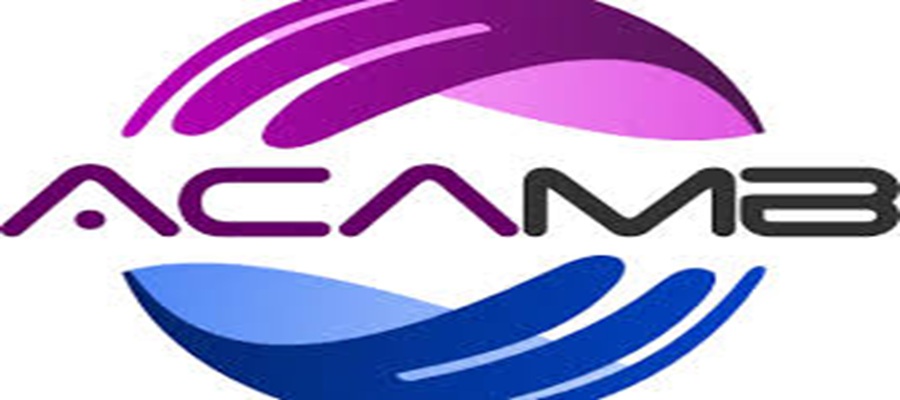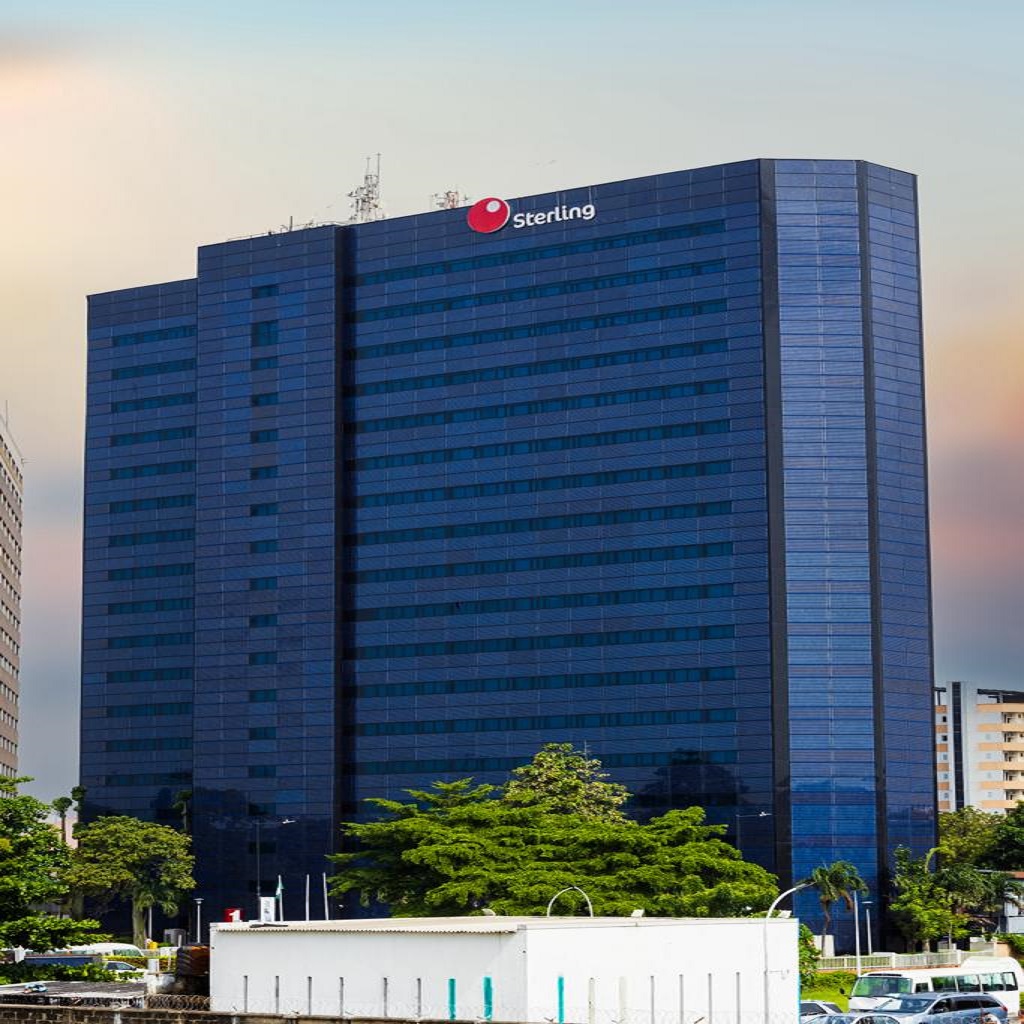E-Financial
Heritage Bank MD Tasks Govt on Policies to Support Private Sector Interventions for Infrastructure Growth

Ifie Sekibo, MD/CEO of Heritage Bank Plc, has called on governments to provide enabling policies that would support private sector interventions to achieve the vision of infrastructural development.

L-R: Blaise Udunze, Team Lead Media and External Relations of Heritage Bank Plc; former Managing Director of Bank of Industry, Waheed Olagunju and the Chairman of Finance Correspondents Association of Nigeria, Titus Nwokoji, during the duo Platinum Awards presented to Ifie Sekibo and Heritage Bank for Outstanding Support towards FICAN and Financial Reporting, respectively at the Finance Correspondents Association of Nigeria’s (FICAN) 30th-anniversary conference and awards with the theme: “Financing Infrastructure & SMEs for inclusive growth in the post-COVID-19 economy,” held in Lagos, weekend.
He made this submission at the Finance Correspondents Association of Nigeria’s (FICAN) 30th-anniversary conference and awards with the theme: “Financing Infrastructure & SMEs for inclusive growth in the post-COVID-19 economy,” held over the weekend in Lagos, where the bank carted away duo Platinum Awards presented to Ifie Sekibo and Heritage Bank for Outstanding Support towards FICAN and Financial Reporting, respectively.
Sekibo who was represented by Olusegun Akanji, Divisional Head, Strategy and Business Solutions, argued that the government cannot solve the country’s infrastructure challenges, noting that it is the private sector that will deliver the solution.
According to him, the government can only provide enabling policies that will support private sector interventions.
“We need the global private sector intervention to help us achieve a vision of infrastructural development,” he said.
He noted that until the country developed an identity management system that delivers value to the citizenry, SMEs will continue to grapple with financing challenges.
He explained that though the banking industry has financed a lot of SMEs in terms of count, that it is the sector that has the largest numbers of bad loans and frauds in terms of count.
MD of FMDQ Group, Bola Koko represented by Yomi Osinubi, Head Private Market, urged Nigeria to conceive a way its domestic capital market could fund the international capital market.
That, he said, was the only way that we could pluck the infrastructure rewards.
“If we want to pluck our infrastructure rewards, first of all we have to conceive of a way our domestic capital market can actually fund capital market.
“But the investors in debt capital market international and debt, money will come into an environment where capital is expected and there is an expectation of good management of those resources and cash flows will come back to it.
“So I think there’s the issue of maybe an underlying structure where we want to put in capital like road infrastructure tax payment.
” If you want SMEs to get the best benefits of infrastructure development in the country, the CBN Governor mentioned the largest areas of course for SMEs which is energy. The second largest is the logistics, movements of cargo around the country,” he said.
Temidayo Obisan, Executive Commissioner, representing the Director General of Securities and Exchange Commission (SEC),Lamido yuguda advised that the nation connected the right duration of money which according to him would be long-term.
“The major thing to identify is that infrastructure is a long-term thing, so it Is essential we connect the right duration of money which is long term capital which is what capital market provides and which sec as a regulator should.
“We have about three surviving infrastructure focus funds in Nigeria now that are totalling almost a 100bn, itching about 90 billion at the moment and there are some that are registered programmes of 200billion,” he said.
More so, the Chairman of FICAN, Titus Chima Nwokoji, said if Nigeria’s infrastructural gap, which is estimated to be N36 trillion annually, is addressed, a lot of the country’s economic challenges will be easily tackled.
“And coming out of COVID-19 pandemic, we know that if the infrastructure is fixed and SMEs thrive, the growth that you see will be faster,” he added.
E-Financial
ACAMB Educates Content Creator to Curb Misinformation on Bank Recapitalisation

In a bid to foster accurate public discourse as well as protect the stability of the financial sector, the Association of Corporate and Marketing Professionals in Banks (ACAMB) has stepped in to educate renowned content creator, Unofficial Osas, following his misrepresentation of facts concerning the Central Bank of Nigeria’s (CBN) recapitalisation drive, and subsequent invitation by the Nigerian Police Force.

ACAMB
The intervention by ACAMB led to the successful retraction of a misleading video regarding the CBN recapitalisation policy, demonstrating the Association’s commitment to its core mandate of public enlightenment.
In his official apology video, the content creator stated, “I was invited by the Nigerian police force national cyber crime centre in Abuja over the video I posted on the 15th of December, where i spoke about 12 banks that were shut down in relation to the CBN recapitalisation policy. I would like to offer an official retraction of that video and want to reiterate that no bank is shutting down.
“As a matter of fact, most of the banks have now met the ₦500 billion minimum capital base for banks with international and the N200bn for national banks recapitalisation requirements, so no bank is shutting down.
“I want to specifically appreciate ACAMB. They were very professional in handling this case and did well to educate and enlighten me on the recapitalisation process. I am now better informed and know better”
Commenting on the resolution, President of ACAMB, Jide Sipe, reinforced the Association’s dedication to protecting the integrity of the banking sector. “ACAMB stands for the restoration of professional banking ethics and public confidence through seamless information management and public enlightenment.
“We believe that an informed public is an empowered public. By engaging Unofficial Osas, we ensured that accurate information regarding the resilience and strength of our banks was disseminated to the millions of Nigerians who follow him.”
The Intervention shows ACAMB is dedicated to evolving strategies that enhance and sustain a good image for the nation’s banking sector as well as assist in fostering better banking habits among Nigerians.
E-Financial
FirstCap MD says Payment Security Remains Biggest Barrier to Bankable Gas and Power Projects

Ukandu E. Ukandu, Managing Director/CEO of FirstCap Limited, a leading investment banking firm and subsidiary of First HoldCo Plc., has reaffirmed that payment security remains the most decisive factor in determining whether gas and power projects in Nigeria secure financing.

He shared this perspective during a panel discussion on project bankability at the 2026 SPE Lagos Energy Week.
Ukandu noted that although several risks influence financing decisions, payment risk consistently emerges as the key barrier to financial close.
“Every major risk matter, but payment risk is the ultimate deal‑breaker. Without strong payment security and disciplined collections, no project can attract sustainable financing,” he said.
He explained that lenders typically evaluate three core risk pillars, payment reliability, foreign‑exchange exposure, and contract enforceability, with payment reliability presenting the greatest challenge across Nigeria’s energy value chain. Persistent collection inefficiencies, rising arrears, and liquidity pressures continue to weaken investor confidence.
To enhance payment security, Ukandu highlighted mechanisms widely used by financiers, including letters of credit, bank guarantees, escrow accounts with payment‑waterfall structures, reserve and sinking funds, sovereign or sub‑sovereign support, and take‑or‑pay offtake agreements.
Addressing foreign exchange risk, he noted that volatility remains difficult to manage, especially for projects with dollar‑denominated costs but naira‑denominated revenues. Lenders typically mitigate this through foreign exchange ‑linked tariff indexation, partial dollarisation for credible industrial offtakers, escrow protections, selective hedging, and foreign exchange reserve buffers.
However, he cautioned that indexation alone seldom eliminates exposure due to regulatory limits and timing delays.
On legal and regulatory certainty, Ukandu stressed the need for contracts that are enforceable and clearly structured, particularly around take‑or‑pay obligations, termination payments, step‑in rights, and dispute‑resolution frameworks. He added that factors such as tariff adjustments, licence changes, and price controls can significantly affect project viability if they are not fully addressed at the contracting stage.
While fiscal incentives such as tax holidays and accelerated depreciation can strengthen project economics, Ukandu emphasised that they cannot compensate for weak fundamentals.
“Incentives make a good project better, but they do not make a weak project bankable. Cash‑flow reliability and disciplined foreign exchange management must come first,” he said. He also noted that naira‑based incentives may lose value if project revenues are not indexed.
He concluded by urging industry players to prioritise revenue security from the earliest stages of project structuring: “Protect returns at the source. Build strong offtake arrangements with solid credit support and currency alignment to ensure cash is received in full and on time.”
E-Financial
Sterling HoldCo Starts Allotment of Oversubscribed Public Offer Shares

Sterling Financial Holdings Company Plc (Sterling HoldCo) has begun allotting 12,581,000,000 ordinary shares of 50 kobo each at ₦7.00 per share from its 2025 Public Offer.

Sterling HoldCo
The process follows Central Bank of Nigeria (CBN) and Securities & Exchange Commission (SEC) approvals.
The offer, opened September 15, 2025, drew 18,280 applications for 16.84 billion shares worth ₦117.88 billion—109.79 per cent oversubscribed.
Valid applications from 18,276 shareholders totalled 13.81 billion shares; all compliant applicants receive full allotments.
Refunds for rejects/excess, plus interest, process via RTGS/NIBSS by February 17, 2026, handled by Pace Registrars Limited.
Shares credit to CSCS accounts by the same date; new accounts held in pool pending documentation.
The raise bolsters capital for banking subsidiaries, injects ₦10 billion into SterlingFI Wealth Management to meet SEC rules, and funds credit expansion, innovation, and support for businesses/households.
Strong Financials, Diversified Growth
FY25 interim results show 99 per cent profit before tax growth; gross earnings up 46 per cent to ₦476.5 billion; assets at ₦3.92 trillion; deposits up 18 per cent to ₦2.98 trillion; shareholders’ funds up 39 per cent to ₦424 billion.
Cost-to-income ratio improved to 63 per cent from 72 per cent.
Subsidiaries—Sterling Bank Limited (conventional), The Alternative Bank Limited (non-interest, 150+ branches)—comply with CBN capital rules.
Initiatives include Mata Zalla (women tricycle training) and Plateau agriculture programme.
The offer attracted first-time retail investors, broadening ownership.
Sterling HoldCo welcomes new shareholders, poised for sustained growth and economic impact.

 Telecom2 days ago
Telecom2 days agoTerra Moves to Expand in African Drone Sector, Secures $22m Funding

 Telecom2 days ago
Telecom2 days agoTemu Assures Compliance Amid Nigeria Data Privacy Probe

 E-Financial2 days ago
E-Financial2 days agoDMO Offers ₦800bn FGN Bonds in February Auction Surge

 E-Financial2 days ago
E-Financial2 days agoDanjuma, Taj Bank Staff Jailed for 5 Years over N22m Fraud

 E-Financial2 days ago
E-Financial2 days agoKPMG Outlook Reveals Financial Services CEOs Double down on AI, Resilience and Growth in 2026

 Telecom3 days ago
Telecom3 days agoMTN Group Announces Proposed Full Acquisition of IHS Towers

 News2 days ago
News2 days agoChianugo, Nigerian $150m suit Against Google, GoDaddy.com Stalled due Judge’s Absence

 General News2 days ago
General News2 days agoFG to Review MTN’s $6.2Bn IHS Acquisition — Tijani


























